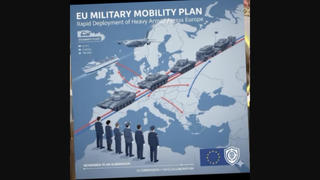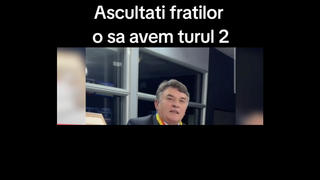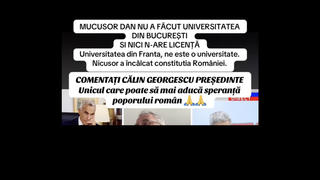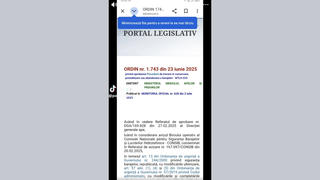
Does the European Union plan to ban barbecues and label meat products with cigarette-like warnings to reduce meat consumption by 80 percent? No, that's not true: The EU has taken no measures to ban barbecues or use warning labels on meat products to reduce greenhouse gas emissions.
The claim appeared in a video on TikTok on November 17, 2023 (archived here), with a caption (translated from Romanian to English by Lead Stories staff) that read:
'Mici' barbecues are being banned
The speaker in the clip says (as translated):
Goodbye, barbecues. Romanians will be left without grilled meat. The EU wants to reduce meat consumption and greenhouse gas emissions, under the pretext that Europeans eat twice as much meat as the global average and that it would be unhealthy. The EU wants to reduce meat consumption by 80%; there is an aim to label meat products with warnings regarding the risk of consumption, just like cigarettes.
This is what the post looked like on TikTok at the time of writing:
(Source: TikTok screenshot taken on Thu Nov 23 07:30:41 2023 UTC)
A recurring scare in Romania suggests the EU could ban a traditional minced meat dish called "mici" (pronounced "meech") since a temporary prohibition on the export of meat containing sodium bicarbonate, an ingredient in mici, was imposed by the EU in 2013. The prohibited use of sodium bicarbonate (E500), a food additive that gives the meat a springy texture, was lifted in 2014 at the request of several member states and it was green-lighted for use in the Romanian dish.
There is no evidence the EU is considering a ban on barbecues, nor that it aims to reduce meat consumption by 80 percent. Searches in the Google News index for both "european union ban barbecues" (archived here) and "european union reduce meat consumption 80%" (archived here) showed no relevant results.
A reduction in meat intake has been recommended or projected by various groups based on climate change, greenhouse gas emissions and sustainability goals. In 2020 for example, Greenpeace published an article proposing a law that would aim for a 70 percent reduction of meat consumption in the EU by 2030 and an 80 percent reduction by 2050.
However, the EU Agricultural Outlook for 2021-31, dated December 9, 2021, shows that the European Commission projected "overall, EU meat per capita consumption is expected to drop from 69.8kg [154 pounds] in 2018 to 67kg [148 pounds] by 2031" showing an overall drop of 4.3 percent in meat consumption.
A search on Google News with the keywords "european union health warnings meat packaging" (archived here) also showed no relevant results. While a few experiments have been conducted, none have been recommended for policy consideration by the EU. For example, a 2023 study published in the journal Appetite described how adding a climate warning label on meat dishes as part of a U.K. experiment reduced how often participants chose meat by 7.4 to 10 percent; in another study, a similar test conducted in the U.S. with text-only warnings on premade grocery store meat meals had no significant effect.

















